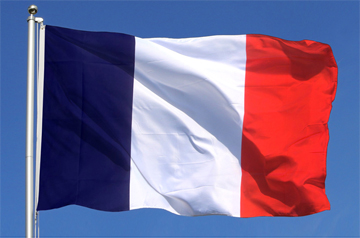Mergers and Acquisitions (M&A) in France have shown dynamic growth and increasing complexity, particularly as regulatory factors and strategic market shifts drive companies toward consolidation and expansion. Historically, France has seen major transactions in sectors like telecommunications, energy, and finance, with regulatory frameworks emphasizing stakeholder interests and transparency. While recent years show heightened M&A activity in technology and renewables, the general trend remains toward high-value deals driven by strategic consolidation, digital transformation, and market entry or scaling.
Key Characteristics of M&A Regulations in France
France’s M&A landscape is shaped by both national and EU regulations, aiming to balance market competitiveness with cultural and operational alignment. Distinctly, French law requires that companies engage in M&A negotiations with a high degree of transparency and good faith, which involves legal disclosures and certain protections for employees. When a buyer acquires 30% or more of a listed company’s shares, they are typically required to make a full public offer. This is stricter than many other jurisdictions, where only higher thresholds might trigger mandatory public offers.
Another regulatory consideration in France involves the need for cultural alignment between merging entities. This focus extends beyond financial integration, reflecting France’s strong corporate governance standards. Additionally, EU antitrust laws also significantly influence M&A in France, as they do across Europe, ensuring that no deal would unduly restrict competition in the marketplace. These laws can delay or even prevent mergers if the European Commission finds potential harm to competition.
France’s Major M&A Deals: Strategic Rationale and Outcomes
The largest M&A deals in France highlight strategic priorities across sectors:
- Bouygues SA’s Acquisition of Equans – $8.2 billion (2021): Bouygues’ acquisition in energy and services marked a major expansion of its technical services capabilities, aligning with its strategic push into infrastructure.
- Veolia Environnement S.A. and SUEZ – $13 billion (2020): This landmark acquisition consolidated Veolia’s position in environmental services. While culturally challenging, it successfully expanded Veolia’s global market.
- Total S.A. and Direct Énergie – $1.7 billion (2018): Total’s acquisition aimed at growing its renewable energy footprint, reflecting broader shifts in the energy sector.
- Sanofi and Synthorx – $2.5 billion (2019): Focused on Sanofi’s long-term innovation in immuno-oncology, the acquisition illustrated the strategic move towards high-growth biotech.
- Peugeot (PSA) and Fiat Chrysler (FCA) – $50 billion (2019): The merger created Stellantis, one of the world’s largest automakers, but integration challenges remain as the companies align their operational strategies.
These deals, along with others such as BNP Paribas’ acquisition of Bank BGŻ and Alstom’s takeover of Bombardier’s rail division, emphasize diverse motivations, from geographical expansion to enhancing technological capabilities. However, not all were seamless; for example, the Veolia-Suez merger required protracted negotiations due to complex regulatory and operational alignment, delaying its closure by nearly a year.
M&A Activity and Strategic Trends in 2024
In 2024, M&A activities in France are predominantly led by deals in tech, energy, and sustainable infrastructure. The emphasis on sustainability and digital transformation remains strong, with firms consolidating to achieve operational scale and efficiency. Companies are motivated to leverage M&A for acquiring advanced technologies, accessing new markets, or meeting stringent environmental goals. Prominent deals in 2024 include Orange’s increased stake in its Africa operations and TotalEnergies’ further investments in renewable portfolios.
Looking forward, France’s M&A outlook appears robust yet measured by regulatory demands, cultural alignment, and sector-driven strategies. This trend aligns with both national priorities and the European Union’s broader competitive market framework, which will likely continue shaping France’s M&A landscape for years to come.

